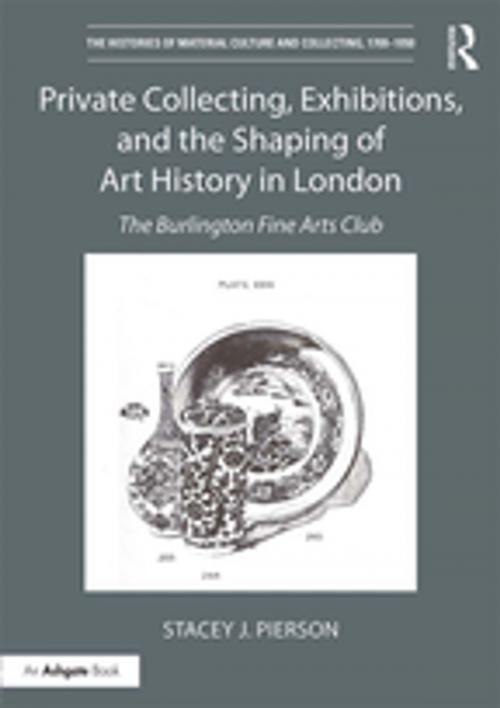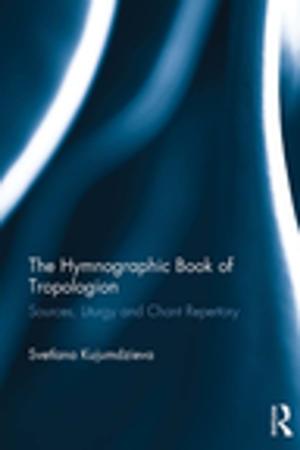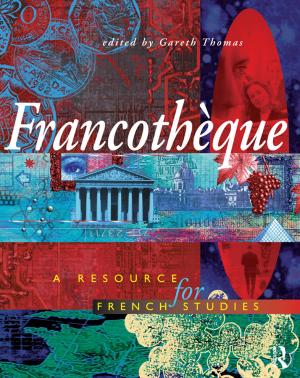Private Collecting, Exhibitions, and the Shaping of Art History in London
The Burlington Fine Arts Club
Nonfiction, Art & Architecture, General Art, Collections, Catalogues, & Exhibitions, Art History| Author: | Stacey J. Pierson | ISBN: | 9781315311913 |
| Publisher: | Taylor and Francis | Publication: | January 12, 2017 |
| Imprint: | Routledge | Language: | English |
| Author: | Stacey J. Pierson |
| ISBN: | 9781315311913 |
| Publisher: | Taylor and Francis |
| Publication: | January 12, 2017 |
| Imprint: | Routledge |
| Language: | English |
The Burlington Fine Arts Club was founded in London in 1866 as a gentlemen’s club with a singular remit – to exhibit members’ art collections. Exhibitions were proposed, organized, and furnished by a group of prominent members of British society who included aristocrats, artists, bankers, politicians, and museum curators. Exhibitions at their grand house in Mayfair brought many private collections and collectors to light, using members’ social connections to draw upon the finest and most diverse objects available. Through their unique mode of presentation, which brought museum-style display and interpretation to a grand domestic-style gallery space, they also brought two forms of curatorial and art historical practice together in one unusual setting, enabling an unrestricted form of connoisseurship, where new categories of art were defined and old ones expanded. The history of this remarkable group of people has yet to be presented and is explored here for the first time. Through a framework of exhibition themes ranging from Florentine painting to Ancient Egyptian art, a study of lenders, objects, and their interpretation paints a picture of private collecting activities, connoisseurship, and art world practice that is surprisingly diverse and interconnected.
The Burlington Fine Arts Club was founded in London in 1866 as a gentlemen’s club with a singular remit – to exhibit members’ art collections. Exhibitions were proposed, organized, and furnished by a group of prominent members of British society who included aristocrats, artists, bankers, politicians, and museum curators. Exhibitions at their grand house in Mayfair brought many private collections and collectors to light, using members’ social connections to draw upon the finest and most diverse objects available. Through their unique mode of presentation, which brought museum-style display and interpretation to a grand domestic-style gallery space, they also brought two forms of curatorial and art historical practice together in one unusual setting, enabling an unrestricted form of connoisseurship, where new categories of art were defined and old ones expanded. The history of this remarkable group of people has yet to be presented and is explored here for the first time. Through a framework of exhibition themes ranging from Florentine painting to Ancient Egyptian art, a study of lenders, objects, and their interpretation paints a picture of private collecting activities, connoisseurship, and art world practice that is surprisingly diverse and interconnected.















